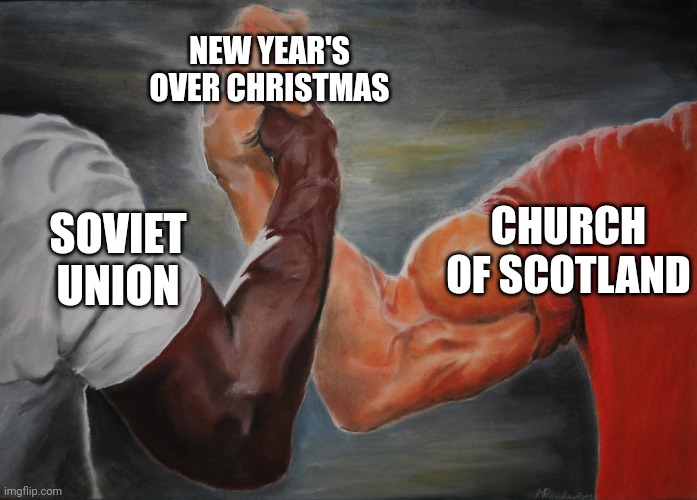Walpurgisnacht
It was in the Year of Maximum Danger
- Location
- Banned from the forum
- Pronouns
- He/Him
I've always been of the opinion that alternate festivals add a lot to the texture of a timeline, and it seems worthwhile to have a general thread to discuss them. I've been reading The English Year, an extremely comprehensive guide to the traditional English calendar, and there are a few ideas in it I think could be interesting:
- Before the Christmas tree was imported from Germany by the Hanoverians and popularised by Queen Victoria, there was actually a similar English custom called the kissing-bough: a metal globe-shaped frame, covered in holly and greenery and hung from the ceiling, with a mistletoe dangling from the bottom. This could become a lot more prominent in any TL without Germans on the British throne.
- So many English folk customs were wiped out and then revived thanks to the English Civil War--a loss for Parliament, or a continued victory for them, would radically alter the tradition. In addition, the Scottish custom of focusing on New Years Day over Christmas dates back to that time, thanks to the Scottish church sticking to a more harsh Protestantism that refused to allow Old Christmas in after the Restoration.
- Somewhat less dramatically, when the May Bank Holiday was introduced, it was seen as Labour promoting International Worker's Day, to the point where the Telegraph claimed the day should be for remembering the victims of Communism. Thatcher's government even briefly planned, once they ascended to power, to replace the day with Trafalgar Day on the 21st of October. This was opposed by business interests, who wanted a day off in sunny springtime rather than gloomy October, and was shelved, but could have been forced through--or, alternatively, the government could have remembered that the most reactionary of holidays, Oak Apple Day, is on the 29th of May...



